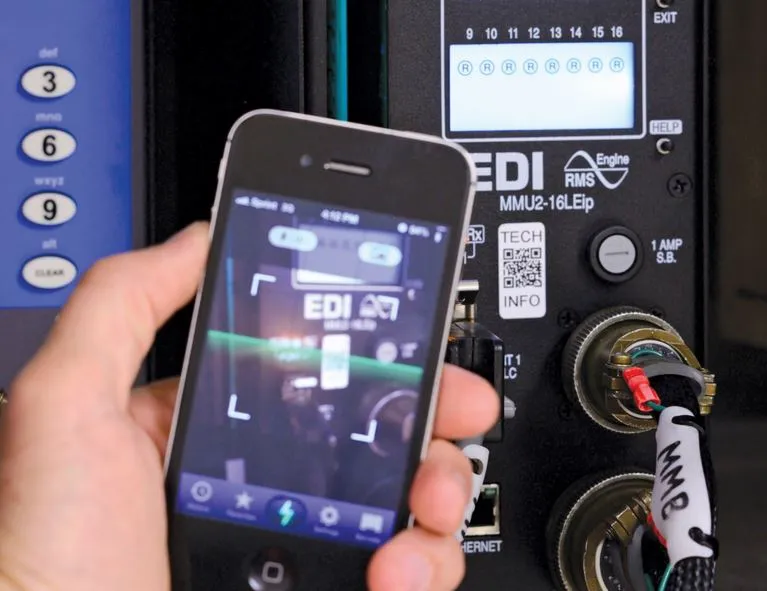Two major US traffic equipment suppliers, Eberle Design (EDI) and The Traffic Group (TTG), have formed an alliance that aims to provide state DOTS and other agencies with customised real-time traffic data.
Announced at the recent ITS America annual meeting, they have signed a Memorandum of Understanding, creating a strategic alliance to provide a suite of EDI privately-labelled custom products to TTG’s customers in the traffic data collection and planning market sector.
EDI is a major manufacturer o
June 21, 2016
Read time: 2 mins
Two major US traffic equipment suppliers, 41 Eberle Design (EDI) and The Traffic Group (TTG), have formed an alliance that aims to provide state DOTS and other agencies with customised real-time traffic data.
Announced at the recent ITS America annual meeting, they have signed a Memorandum of Understanding, creating a strategic alliance to provide a suite of EDI privately-labelled custom products to TTG’s customers in the traffic data collection and planning market sector.
EDI is a major manufacturer of electronic monitoring and detection products for the traffic, parking/access and rail industries, with a range of products including conflict monitors, inductive loop detectors, flashers, load switches and other mission critical components.
Established in 1985, TTG offers services that help determine road improvements, signal and sign location, lighting plans, land usage, public facility and capacity issues, and security measures. With over 3,000 pieces of traffic data collection equipment, the company conducts more than 100,000 traffic counts for clients annually.
“We are pleased to have an opportunity to work with TTG to pursue traffic data collection and traffic planning projects that we would not normally see in our normal intersection-based traffic control market. EDI will customise our iCITE, (Intelligent Cabinet Interface to Traffic Equipment), traffic data collection and reporting products, to meet the specific market requirements of TTG,” said Bill Russell, president and CEO of EDI.
“The Traffic Group is very excited to have access to EDI’s leading-edge data collection devices, and we look forward to working cooperatively with EDI’s established network of local traffic control equipment dealers, to provide the very best real-time traffic data collection services to TTG customers,” said Wes Guckert, PTP, and president of The Traffic Group. “TTG will utilise EDI products to aggregate real-time traffic data, using a variety of traffic sensor technologies, incorporating the data into a turn-key TTG traffic data collection solution that we may provide or may be gathered by the DOT agencies.”
Announced at the recent ITS America annual meeting, they have signed a Memorandum of Understanding, creating a strategic alliance to provide a suite of EDI privately-labelled custom products to TTG’s customers in the traffic data collection and planning market sector.
EDI is a major manufacturer of electronic monitoring and detection products for the traffic, parking/access and rail industries, with a range of products including conflict monitors, inductive loop detectors, flashers, load switches and other mission critical components.
Established in 1985, TTG offers services that help determine road improvements, signal and sign location, lighting plans, land usage, public facility and capacity issues, and security measures. With over 3,000 pieces of traffic data collection equipment, the company conducts more than 100,000 traffic counts for clients annually.
“We are pleased to have an opportunity to work with TTG to pursue traffic data collection and traffic planning projects that we would not normally see in our normal intersection-based traffic control market. EDI will customise our iCITE, (Intelligent Cabinet Interface to Traffic Equipment), traffic data collection and reporting products, to meet the specific market requirements of TTG,” said Bill Russell, president and CEO of EDI.
“The Traffic Group is very excited to have access to EDI’s leading-edge data collection devices, and we look forward to working cooperatively with EDI’s established network of local traffic control equipment dealers, to provide the very best real-time traffic data collection services to TTG customers,” said Wes Guckert, PTP, and president of The Traffic Group. “TTG will utilise EDI products to aggregate real-time traffic data, using a variety of traffic sensor technologies, incorporating the data into a turn-key TTG traffic data collection solution that we may provide or may be gathered by the DOT agencies.”










